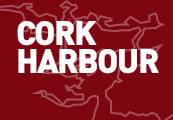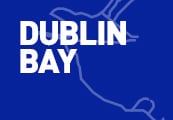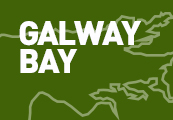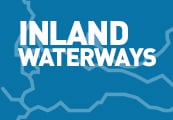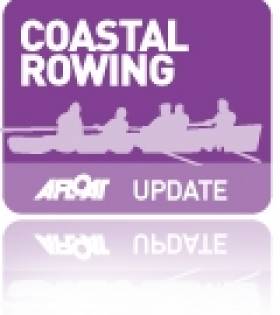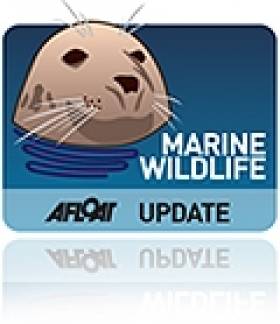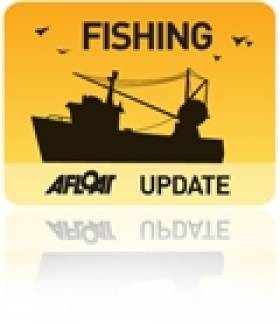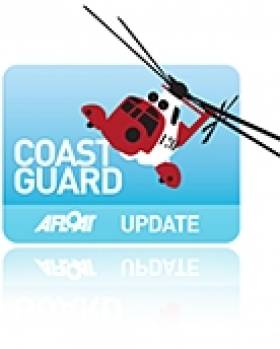Displaying items by tag: Britain
The RYA says it stands with more than 40 organisations representing users and supporters of Britain’s inland waterways in calling for the UK Government to increase its funding for their maintenance.
This week a long-term funding settlement for the Canal & River Trust from 2027 to 2037 was announced by Secretary of State for Environment, Food and Rural Affairs, Thérèse Coffey.
But the trust says the £400m-plus package represents a 40 per cent reduction in its funding in real terms over the 10-year period.
As previously reported on Afloat.ie, Fund Britain’s Waterways—a new coalition of waterways stakeholders—says the UK Government is failing to respond at a time of unprecedented challenges caused by the climate emergency and high inflation.
And it is campaigning for national and local government to act now and protect the public benefit and natural capital of Britain’s inland waterways.
“The RYA is deeply concerned by the Secretary of State’s announcement this week as it represents a huge real-term reduction in the already under-invested in canal and river network,” said RYA director of external affairs Mel Hide.
“These waterways belong to us all and are a valued part of our heritage. This reduction and the inevitable decline in the condition of the network could mean a substantial risk to the freedom of navigation and the vital blue spaces and their biodiversity that benefit millions of people.”
New Coalition Calls on Whitehall to Stop Britain’s Inland Waterways Falling Into Disrepair
Britain’s network of canals and navigable rivers is deteriorating because of inadequate funding, argues a new coalition of inland waterways organisations.
Fund Britain’s Waterways says the UK Government is failing to respond at a time of unprecedented challenges caused by the climate emergency and high inflation.
And it is campaigning for national and local government to act now and protect the public benefit and natural capital of Britain’s inland waterways.
Management of Britain’s 5,000 miles of navigable inland waterways is fragmented. The Canal & River Trust (CRT) has the greatest responsibility, covering 2,000 miles, with a fixed Government grant of £52.6m per year until 2027. Defra was expected to confirm funding for 2028 onwards in July 2022 but has not yet made an announcement.
Other waterways face similar problems, the coalition says. The Environment Agency is operating with £22m per year, one third of its identified requirement, and Scottish Canals has over £70m of maintenance work outstanding.
Fund Britain’s Waterways says the consequences of failing to maintain waterway infrastructure are illustrated by the evacuation of 1,500 local residents in case the dam at Toddbrook Reservoir collapsed in 2019.
It adds that the Covid-19 pandemic has demonstrated the value of Britain’s inland waterways as people sought blue and green spaces to help recover. This was acknowledged in Defra’s own Environmental Improvement Plan, providing levelling up, economic, environmental, health and wellbeing benefits.
The combined annual economic and social value of CRT waterways alone has been quantified as £6.1bn, including cost savings of £1.1bn for the NHS from active use of the waterways and towpaths, the coalition says.
Yet despite this, the UK Government appears intent on significantly reducing its funding for the waterways, says Les Etheridge, chair of the FBW steering group and national chair of the Inland Waterways Association.
“Government needs to recognise that saying they value the inland waterways is not enough to prevent their decline,” he said. “Whilst we in FBW understand the financial pressures that everyone faces, the financial cuts are too deep, and adequate public funding needs to be allocated to maintain these national assets.
“FBW will be taking action starting with a campaign cruise in Birmingham over the weekend of 12-13 August 2023.”
For more on Fund Britain’s Waterways, visit www.fundbritainswaterways.org.uk.
A new review of marine wildlife in British waters reveals that once-rarely seen humpback whales have rebounded in recent years.
Marine Industry News reports on the 2021 Marine Review from The Wildlife Trusts which notes that humpback whale numbers are recovering since bans on commercial hunting, with more than 75 sightings around Britain since 2019.
Other sightings of note in the last 12 months include two orcas seen off Penzance in Cornwall — the most southerly sighing in half a century — and a 10-strong pod of white-beaked dolphins spitted off Essex for the first time in over two decades.
Elsewhere, puffins have returned to the Isle of Man in the Irish Sea after an absence of 30 years following a vermin control programme.
Wally the Arctic walrus’ adventures around the UK before his trail of destruction along Ireland’s South Coast made for some excitement last summer.
And the world’s largest skate, a juvenile flapper skate, was recorded in Northern Ireland as part of Ulster Wildlife’s Sea Deep programme — whose project officer Ronald Surgenor was awarded a marine conversation award in late 2020.
But concerns remain regarding a series of cetacean and marine mammal strandings around Britain’s coasts, with noise from wind farms and unsustainable fishing practices put under the spotlight.
The Wildlife Trusts website has more on the review HERE.
#Rowing: Britain won the first race of the Coupe de la Jeunesse 2018 at the National Rowing Centre in Cork. The junior women’s eight, the traditional starting event for the event, featured five boats. Spain and France took the minor medals, while Ireland took fourth. The Coupe continues until Sunday.
Coupe de la Jeunesse, National Rowing Centre, Day One
Junior Women’s Eight – Final: 1 Britain 7:04.9, 2 Spain 7:07.1, 3 France 7:07.7; 4 Ireland (A Tyther, R O’Donoghue, C O’Sullivan, J Duggan, J Harrington, E Murphy, E Carney, C Nic Dhonncha; cox: V Hanlon) 7:15.5.
Irishman Sheehan in Record-Breaking Rowing Crew
# coastalrowing: Irishman Gavin Sheehan and his three crewmates aboard the Black Oyster have set a new record for rowing around Britain. The Islanders rowed approximately 2,000 miles non-stop around Britain from Tower Bridge in London in 26 days nine hours nine minutes and 58 seconds. The previous record was 26 days 14 hours and 11 minutes. There is a prize of £100,000 for the record.
The 25-year-old Corkman represented Ireland at the Home International Regatta in 2005. He won the Junior Pairs title at the Irish Championships with his brother Graham in the same year.
RYA 'Encouraged' By Britain's Moves On Marine Conservation Zones
#RYA - The Royal Yachting Association (RYA) has said it is "encouraged" by the British government's approach to designating Marine Conservations Zones (MCZs) around the coastlines of England and Wales - the details of which have disappointed environmental groups.
RYA planning and environment advisor Caroline Price commented: “The phased approach that government is proposing appears on the face of it to be very sensible.
“The RYA has been resolute in insisting that an MCZ should be no larger than required to protect the habitats and wildlife features which it is intended to protect and that the scientific basis for designating a particular feature for protection should be sound.
“We are pleased therefore to see that ministers have recognised that they need to have a strong evidence base when looking to designate sites, from both an ecological and socio-economic perspective.
“We are particularly encouraged that the approach to highly protected sites is being reviewed as the proposals for Reference Areas are of great concern to us.”
Of the 31 sites proposed in the consultation for designation by the end of 2013, the RYA has objections to only one of the sites - the Aln Estuary, which contains "a small charted anchorage in the one location in which a vessel can stay afloat at all states of the tide in the estuary".
The response from the RYA comes just days after environmental groups in the UK expressed their dismay over the government's decision to designate just a quarter of the recommended 127 sites.
As the Guardian reports, Westminster was accused of a "lack of ambition" by the Marine Conservation Society (MCS) over the announcement last Thursday 13 December, which it says ignores the government's own advisers who recommend a 'coherent network' that includes immediate designation for 59 sites regarded as 'highly threatened'.
The RYA says it is "broadly supportive of government plans to establish a coherent network of Marine Protected Areas and Marine Conservation Zones.
"However, it has fought throughout the process to date, and will continue to do so, to protect the public right of navigation and to ensure, as far as is possible, that recreational boating interests are not adversely affected by the designation of such MCZs."
It also emphasises that the "omission of the detail of management measures from this [public] consultation means that we still don’t really know what designation will actually mean" to affected local communities.
British Boat Users Sailing Abroad Risk Fines Over Red Diesel
#NEWS UPDATE - British boat users are risking big fines if they sail their craft outside UK waters due to new laws on the use of red diesel, the Daily Telegraph reports.
New laws coming into force on 1 April "will require anyone moving into international waters to sign a declaration that their boat is not being powered by red diesel".
Red-dyed diesel is used by farmers and commercial fishermen throughout the UK at a lower rate of duty. It is also widely used by recreational boaters and yacht owners, as is green diesel by Irish pleasure boaters, though such users have been required to pay the full rate of tax for a number of years now.
However, the European Union is now clamping down on the use of dyed diesel.
The decision by Brussels is causing consternation among the yachting community, which argues that unmarked or 'white' diesel is not widely available in harbours and marinas.
And concerns remain over the presence of biofuels in white diesel which, as previously reported on Afloat.ie, can be harmful to marine engines.
The Daily Telegraph has more on the story HERE.
Cumbrians Urged to Try New Fish to Save Irish Sea Stocks
#FISHING - Seafood lovers of Cumbria in north-west England have been urged to broaden their tastes to save depleted stocks of their favourite fish in the Irish Sea.
According to the News & Star, some 80% of Britons "insist upon eating just five types of fish – cod, tuna, salmon, prawn and haddock."
But the Cumbria Wildlife Trust says that with coastal waters facing the serious threat of overfishing, a rethink is needed among both consumers and suppliers alike.
“The Irish Sea has a wide range of edible fish species but you wouldn’t know it judging by the fish counters in supermarkets across the county," says Lindsay Sullivan of the trust's Wild Oceans project, an 18-month scheme that hopes to "turn the tide for seafood".
A big part of this is encouraging consumers to skip the usual white fish and try different species such as flounder, monkfish and red mulllet, creating demand for cheaper and more sustainable fishing.
The News & Star has more on the story HERE.
Public Needed to Help Record Whale and Dolphin Strandings in UK
#MARINE WILDLIFE - Some 46 reports of stranded whales and dolphins in Northern Ireland are among the thousands recorded across the UK over the last six years, according to BBC News.
A new study co-ordinated by the Zoological Socoety of London (ZSL) shows that some 3,500 cetaceans were stranded on the British coastline between 2005 and 2010.
Though year-on-year figures have fallen overall, is presumed that many more strandings have gone undetected.
Many were found to have died of disease or starvation – particular harbour dolphins.
But human activity such as fishing, shipping and chemical pollution also poses a significant threat to marine wildlife in the waters around the British Isles, said Rob Deaville of the ZSL.
The public is being encouraged to report stranded marine mammals to help create a more accurate picture.
BBC News has more on the story HERE.
Russian Ambassador Proposes Reward for Swanland Rescuers
#COASTGUARD - Russia's ambassador to Britain has proposed rewarding rescuers involved in the search for missing seamen in the Irish Sea last week following the sinking of the cargo ship Swanland.
As previously reported on Afloat.ie, the cargo vessel - carrying 3,000 tonnes of limestone - went down some 10 miles west of the Lleyn peninsula in north Wales in the early hours of last Sunday.
Two of the eight crew, who were all Russian, were recovered from the sea. A third was found deceased, while the remaining five are still missing.
As many as 11 coastguard rescue teams were involved in the search operation, which also saw an RAF rescue helicopter - piloted by Prince William - lend assistance.
At a meeting with the two rescued sailors in London last Wednesday, Ambassador Alexander Yakovenko commented: “What if we propose [the rescuers] to be rewarded by the Russian side?”
Russian news agency RIA Novosti has more on the story HERE.


